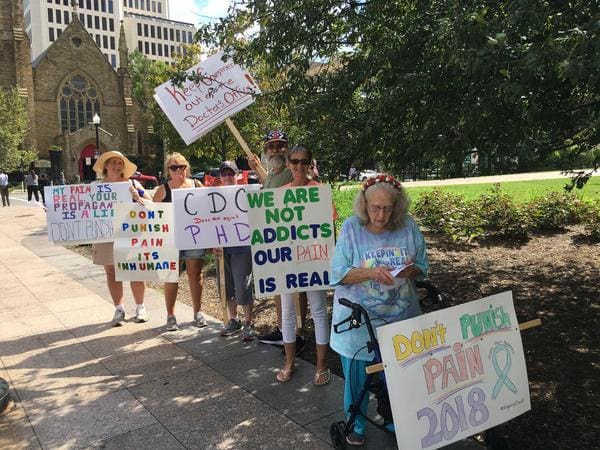Search Posts
Recent Posts
- Vinny Paz to be inducted TODAY into the International Boxing Hall of Fame – CES Boxing June 7, 2025
- In the News… quick recap of the week’s news (6.7.25) June 7, 2025
- Burn with Kearns: Strong without the spend: How scraps became strength tools – Kevin Kearns June 7, 2025
- Rhode Island Weather for June 7, 2025 – Jack Donnelly June 7, 2025
- How to advocate for threatened properties: The Heritage Alliance of Pawtucket June 7, 2025
Categories
Subscribe!
Thanks for subscribing! Please check your email for further instructions.

Repeal the RI Opioid Tax; protect access for patients in pain, says RI Center for Freedom & Prosperity
by Michael Stenhouse, RI Center for Freedom and Prosperity
As was predicted by the Center’s Chairman last year, the 2019 Opioid Stewardship Act, enacted legislation that placed a tax on the legal use of painkillers, has resulted in unintended consequences that have disrupted supply chains and placed additional financial burdens on patients.
Today, the RI Center for Freedom & Prosperity sent an open letter to General Assembly leadership, calling on them to repeal the Act.
Cited in the letter from his 2019 Providence Journal opinion piece, Dr. Stephen Skoly, a maxillo-facial surgeon, with long experience in prescribing legal pain relief medications, wrote – “when developing policy, Rhode Island legislators need to acknowledge the importance of protecting the affordability and accessibility of necessary medications for our state’s patients and their families.” The Center believes the time is now to correct last year’s mistake.
Here is the letter:
Dear Speaker of the House Nicholas Mattiello and Senate President Dominick Ruggerio:
I am writing this open letter to you to recommend repeal of the Opioid Stewardship Act, passed and enacted last year, which levies a tax on medicines that lawmakers considered to be involved in the opioid crisis. However, as with all attempts to increase the tax burden on our state’s healthcare system, costs are being passed down to patients.
This adverse impact of this tax was predicted in an opinion piece last spring in the Providence Journal by our Center’s Chairman of the Board, Dr. Stephen Skoly, a maxillo-facial surgeon in Cranston.
While those who produce opioids are not being directly taxed, every other part of the supply chain appears to have borne the brunt. Distributors, pharmacies, hospitals, and urgent care clinics – all part of the vital care system which gets medications into patients’ hands – have been unduly burdened by the bill. This is not to mention the patients who rely on opioid-based pain relief in their daily lives.
Any tax on a legal medication raises ethical red flags but increasing the costs of medicine for those who suffer from severe pain is completely reprehensible. I am encouraged that both of you have indicated some openness to revisiting the bill. And hopefully you will do so during this year’s General Assembly session, even considering a full repeal of the opioid tax as part of the 2021 budget.
Combatting the opioid crisis requires a comprehensive approach, which brings together patients, providers, law enforcement, and healthcare suppliers to work collaboratively – not another government-imposed tax. As we’ve seen in our state and in others, more taxes increase costs for patients, harming middle class families and taxpayers.
As Chairman Skoly wrote, “when developing policy, Rhode Island legislators need to acknowledge the importance of protecting the affordability and accessibility of necessary medications for our state’s patients and their families.”
It is time to correct last year’s mistake. As the legislature looks to repeal or revise the 2019 Opioid Stewardship Act in this, the 2020, session, I encourage you to break with the dangerous precedent of taxing legal medications and work to engage our community-members. We can find a way to combat addiction which does not reach into the pockets of hardworking Rhode Islanders and patients.
We look forward to working together to end our state’s opioid crisis with common sense and compassion, which begins by repealing the Opioid Stewardship Act.

Mike Stenhouse, CEO, Rhode Island Center for Freedom and Prosperity
(Photo: Ohio patient group protests taxes on painkillers)
